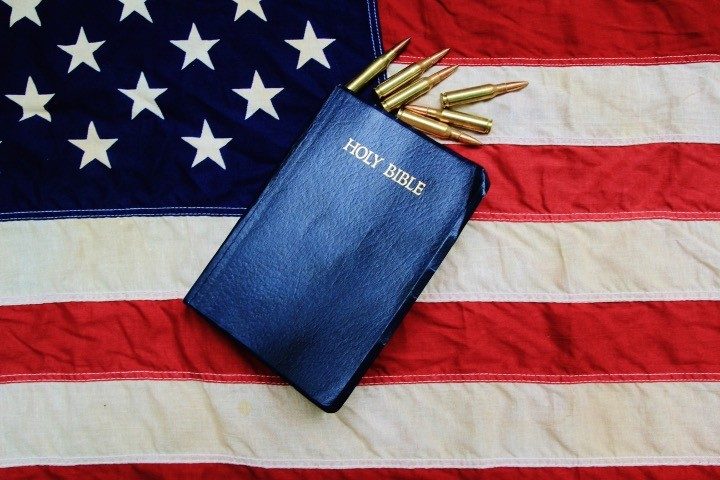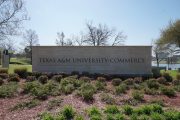
Eight days after the Supreme Court ruled in June against New York in its Bruen decision that the state’s restrictions on concealed carry permits were unconstitutional, and declared further that all citizens, including New Yorkers, had the constitutional right to carry firearms outside their homes for self-protection, the Democrat-controlled state Legislature enacted a “work-around” law to circumvent Bruen.
The law — S51001 — declares a total ban on the carrying of firearms in “any place of worship or religious observation.”
In a lawsuit brought by First Liberty Institute (FLI) on behalf of Pastor Micheal Spencer and his church, His Tabernacle Family Church, with locations in Horseheads and Ithaca, New York, the complaint states that
It is thus now a felony in New York to carry a firearm in a place of worship, regardless of whether one has a license to carry a firearm and regardless of whether the place of worship expressly authorizes — or even encourages — the carrying of firearms on its property.
Pastor Spencer and a number of his parishioners have shown skill at arms and, until passage of the law defying Bruen, regularly carried firearms during church services to protect the flock.
What makes the new law especially pernicious is its flagrant disregard of the Bruen decision. It specifically targets churches, as the law allows other property owners to give permission to their visitors or customers to carry on site.
The complaint refers not only to Bruen as precedent, but also to another Supreme Court decision — Roman Catholic Diocese of Brooklyn v. Cuomo — that was decided in 2020 that struck down then-Governor Andrew Cuomo’s “Covid occupancy” requirements which unfairly applied to churches.
Wrote the lawyers from FLI:
Those decisions should have taught New York to proceed with extreme caution where First or Second Amendment rights are at stake going forward.
Instead, the state recently doubled down on its rights-denying tendencies — by infringing two fundamental liberties at the same time.
New York now puts houses of worship and religious adherents to an impossible choice: forfeit your First Amendment right to religious worship or forfeit your Second Amendment right to bear arms for self-defense.
The complaint focuses on Democrats’ deliberate intention to single out churches in its attempt to circumvent Bruen:
New York’s attempt to force houses of worship and their parishioners to choose between their First Amendment rights and their Second — an outlier policy shared by no other state in the Nation — stands as an act of defiance to the Supreme Court’s recent and emphatic holdings protecting both.
First, by prohibiting the exercise of a fundamental constitutional right in places of worship while permitting its exercise on a wide variety of other private property, and denying to religious leaders the authority it gives other private property owners to decide whether to permit the carrying of firearms, the state discriminates on the basis of religious status, singles out houses of worship for especially harsh treatment, and treats comparable secular activity more favorably than religious exercise.
Additionally, S51001 runs into the Establishment Clause by entrenching on core matters of internal church governance.
The state may have power to dictate many things, but how worshippers should conduct themselves at worship services on church property is not one of them.
Attorneys from FLI pointed out that the legislation passed within days of the Bruen decision had been carefully crafted months earlier, in anticipation of the ruling:
While Bruen and Roman Catholic Diocese should make New York [Democrats] particularly sensitive to protecting … citizens’ First and Second Amendment rights, they seem to have prompted exactly the opposite reaction.
Barely before the ink on Bruen could dry, New York embarked on a campaign “to offset the impact of the court’s decision” — a campaign that also tramples First Amendment rights….
Of course, New York was able to move so quickly because it began preparing legislation to undercut any eventual Supreme Court decision before it was even handed down and regardless of what it might say about the Constitution’s demands….
New York officials have made abundantly clear both their contempt for Bruen and their intention to vigorously enforce all aspects of S51001 notwithstanding the constitutional rights upon which it tramples.
The “workaround” law puts Pastor Spencer and his church — and all other churches in New York — at greater risk than before:
Pastor Spencer believes that someone planning to harm or kill his flock will not be deterred by S51001, and may in fact by emboldened by it since it leaves [all] houses of worship defenseless against those bent on doing violence to people of faith.
The complaint filed on behalf of Pastor Spencer and his church concludes that what New York Democrats have done is deliberately attack not only their church (and all other churches in the state), but also the constitutional basis upon which all religious institutions in the state and the nation operate:
It is therefore a constitutional vice, not a virtue, that New York has disarmed all religious people all at once, whether they kneel in prayer or stand in worship.
In short, S51001 is a compendium of constitutional infirmities, infringing in one fell swoop on Pastor Spencer’s and the Church’s rights to freely engage in religious exercise, to exercise autonomy over the Church’s internal affairs, and to carry firearms to ensure the safety of all persons on the Church’s premises.
The complaint exposes the agenda of New York Democrats: not only their complete and total disregard for and antipathy toward the Supreme Court’s decisions relating to this case, but their vicious animosity toward religion in general. The complaint exposes the real culture war: the church versus the state.
Pastor Spencer and his church are demanding a trial by jury to hear their complaint.



